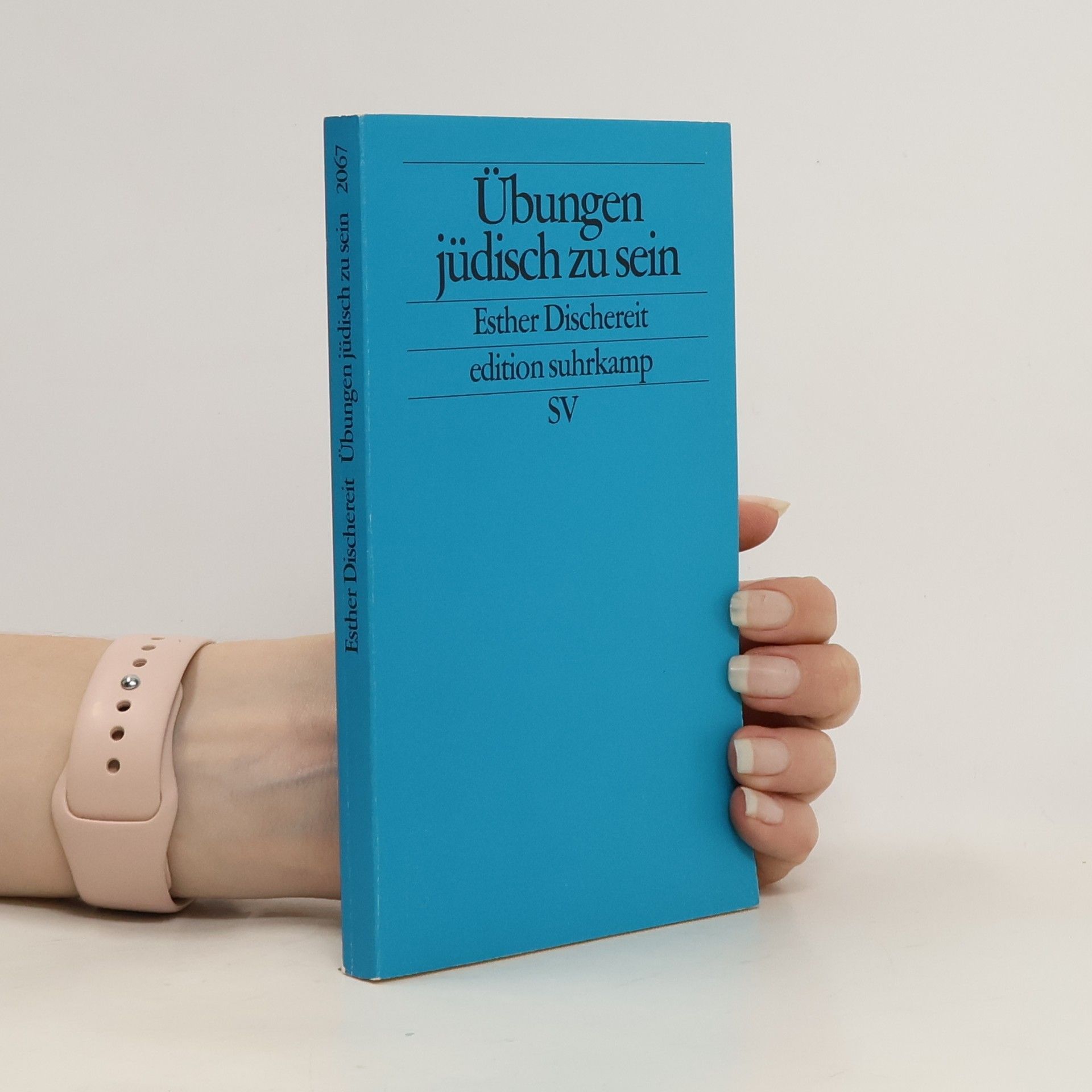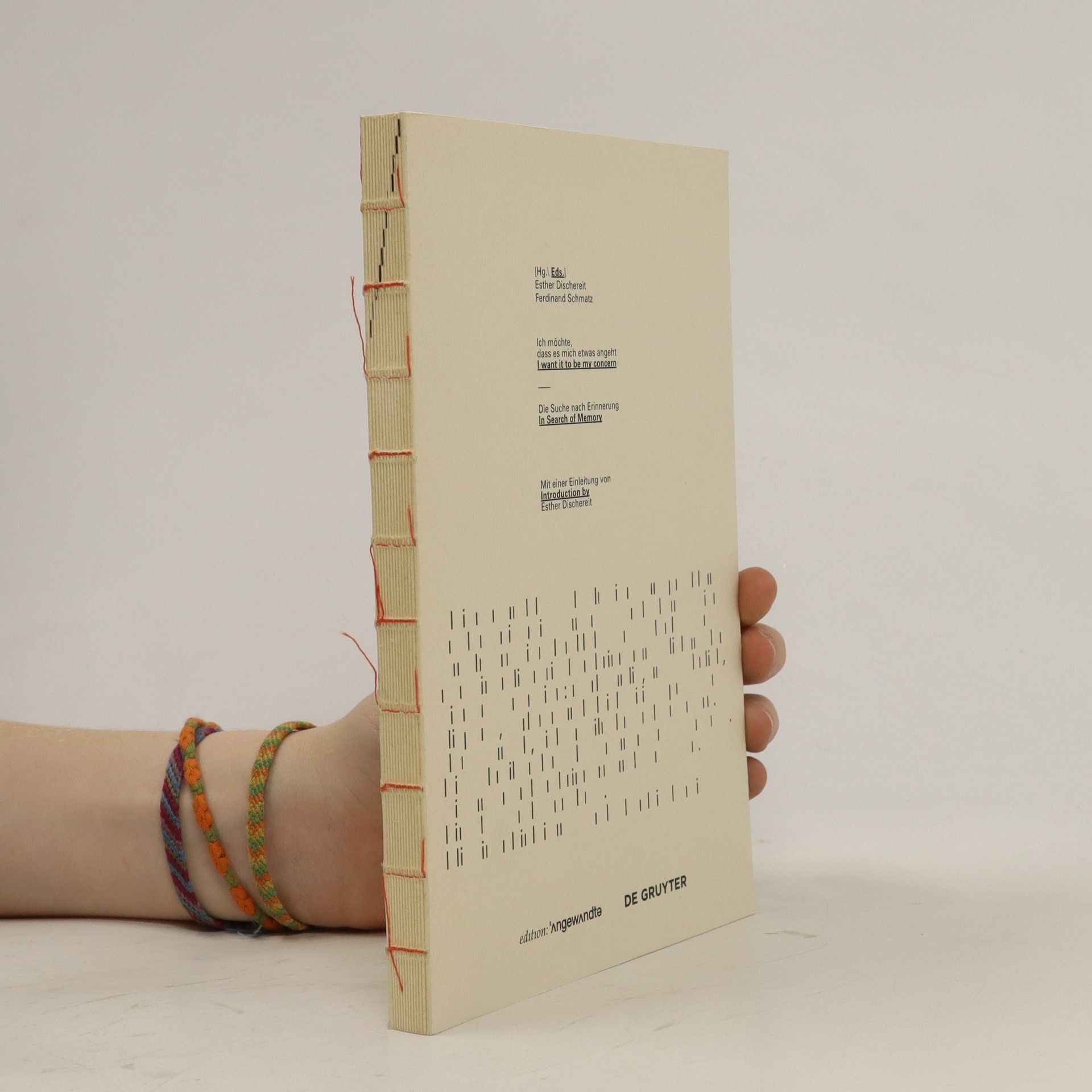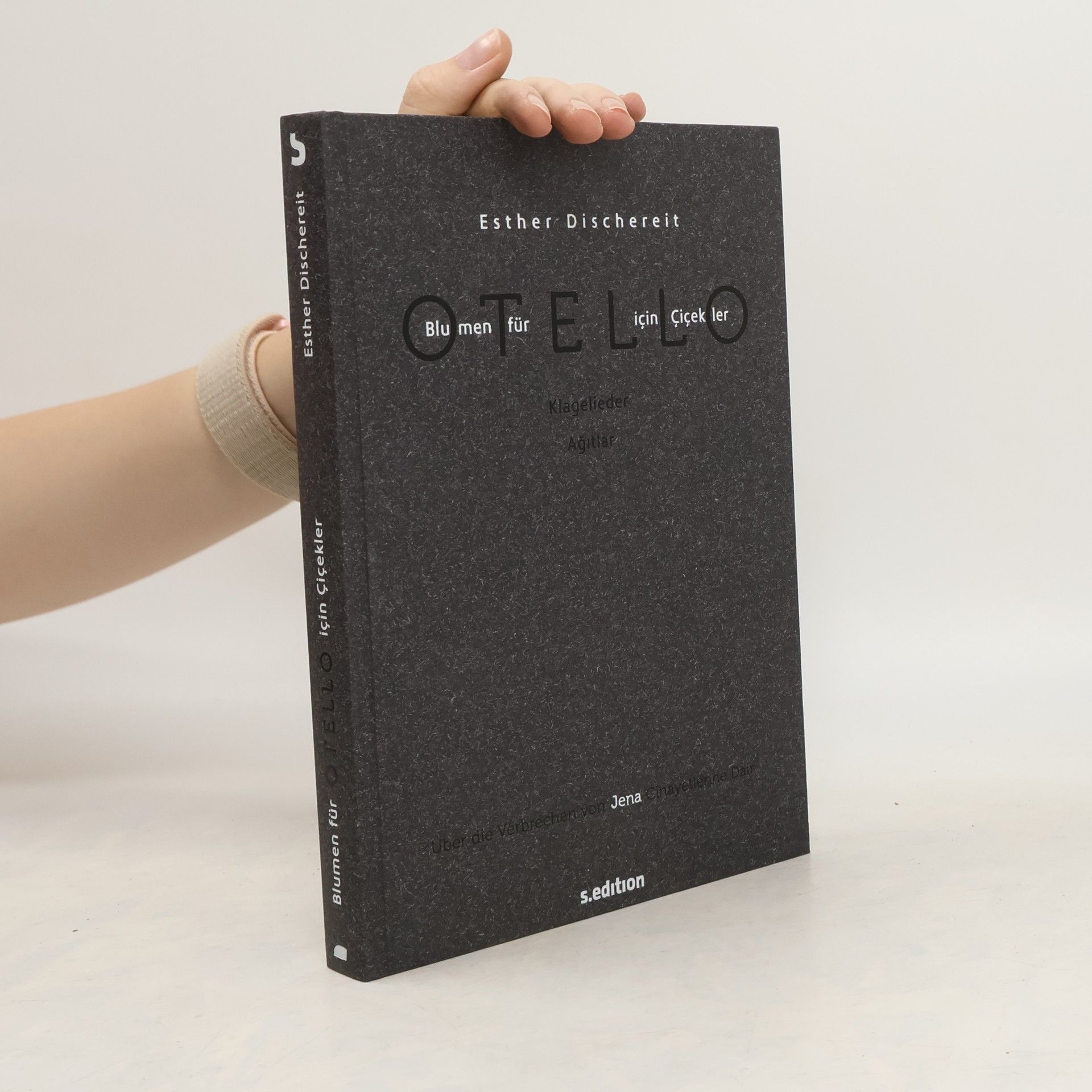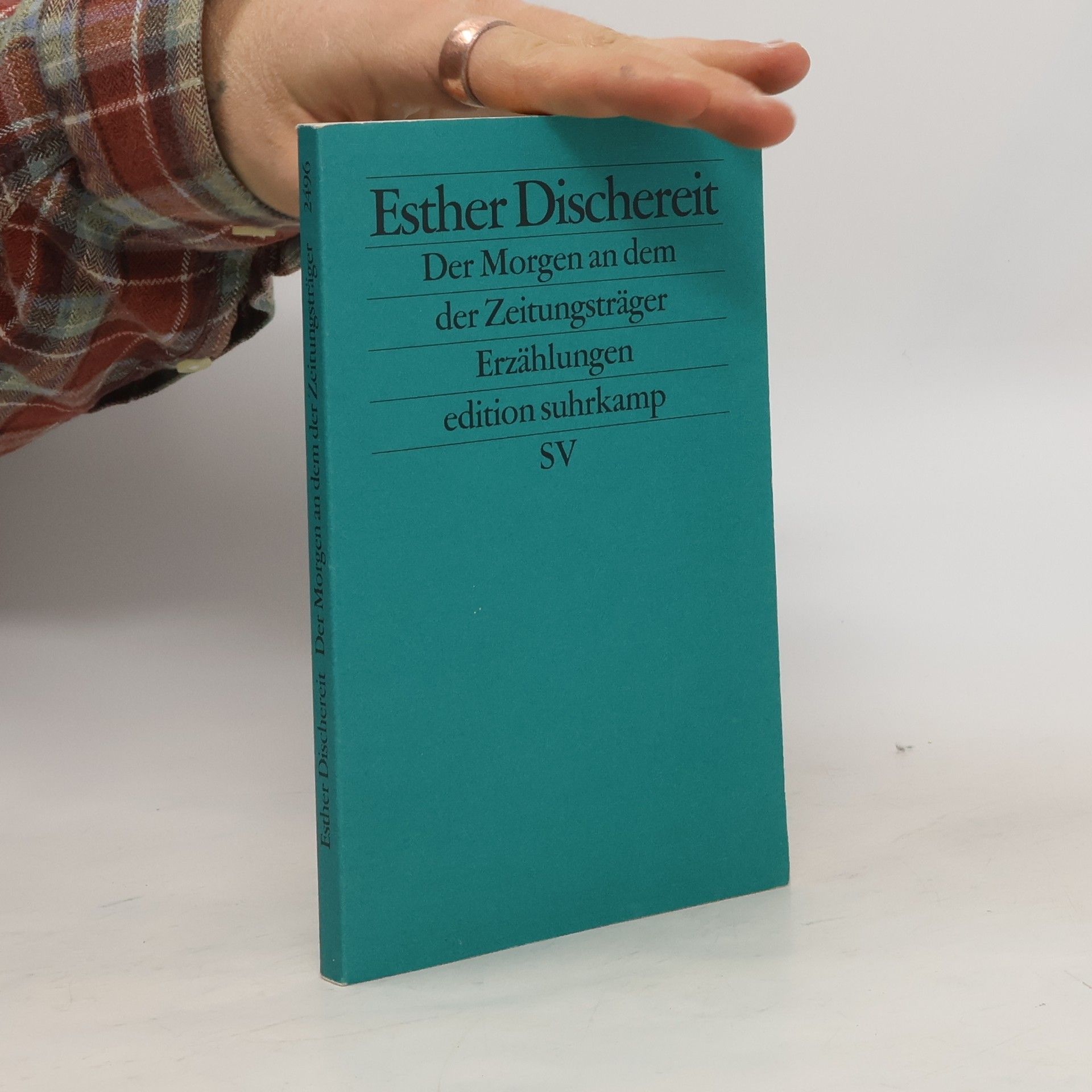In "Ein Haufen Dollarscheine" wird die komplexe Vergangenheit einer jüdischen Frau thematisiert, die sich mit ihrer Familie und ihrer Identität auseinandersetzt. Zwischen Erinnerungen, familiären Konflikten und kulturellen Spannungen entfaltet sich ein tragikomisches Familiendrama, das in verschiedenen Städten spielt.
Esther Dischereit Book order (chronological)






A powerful performance text that illuminates incidents of anti-immigrant violence in contemporary Germany. Between 1998 and 2007 a series of killings in Germany, disdainfully styled “doner murders” by the media, were attributed by German police to internecine rivalries among immigrants. The victims included eight citizens of Turkish origin, a Greek citizen, and a German policewoman. Not until 2011 did the German public learn not only that the police had ignored signs pointing to the real perpetrators, a neo-Nazi group called the National Socialist Underground, but also that important files, possibly containing evidence implicating state agencies, had disappeared from the archives of Federal Police and intelligence organizations. Esther Dischereit, one of the preeminent German-Jewish voices of the post-Holocaust generation, takes that failure of the state to protect its citizens from racist violence as the core of her performance text Flowers for On the Crimes That Came Out of Jena . Seeking an appropriate language with which to meet the bereaved, she also finds a way to raise the blanket of silence that is used by those who would prefer that we forget. Combining witness testimony, myth, and incidents from a history of violence against minorities, Flowers for Otello , in Iain Galbraith’s translation, refuses chaos, instead revealing the chilling, patterned order of tragedy while bringing a great writer’s humanism to the fore.
"Merryn - ein Entwicklungsroman in Fragmenten. Mit sechzehn läuft das jüdische Mädchen von zu Hause weg. Über eine Bergarbeiterkneipe in Lothringen und eine Druckerlehre in Hessen führen Merryns Fluchten schließlich nach Berlin, von wo die Großeltern ins KZ transportiert worden sind. Die Berührungen mit Familie, mit Staat und Gesellschaft werden von ihr als gewaltsam und gewalttätig erfahren. Das Verhältnis zu Männern stigmatisiert ihre Entwicklung. »So lag sie in der Berührung wie sprödes Holz und splitterte dabei.«" -- preliminary page
Hab keine Angst, erzähl alles!
Das Attentat von Halle und die Stimmen der Überlebenden
Zahlreiche Überlebende und Angehörige der Opfer der Mordanschläge von Halle am 9. Oktober 2019 wollen sich mit diesem Buch Gehör verschaffen. Während des Prozesses haben sich viele Betroffene und ihre Anwälte zu Wort gemeldet und in bewegenden, außergewöhnlichen Texten und Reden ihrem Schmerz und ihrem Zorn Ausdruck verliehen; und sie fragen nach Solidarität und Zusammenhalt in einer vielfältigen Gesellschaft. Eine Auswahl dieser und weiterer Texte hat Esther Dischereit in Zusammenarbeit mit den Autorinnen und Autoren zusammengestellt. Daraus entsteht eine beeindruckende Dokumentation des Anschlags mit besonderem Augenmerk auf die juristische und öffentliche Verarbeitung sowie das Erleben der Betroffenen.
Jüdisch. Solidarisch. Antirassistisch. Esther Dischereits Texte sind Einmischungen in politische Angelegenheiten. Sie zeigt auf die nationalistischen Konstruktionen und die staatliche Gewalt, sie ist persönlich involviert und widerspricht. Die Essays handeln von deutsch-jüdischen Zuständen, der Aktualität rassistischer Strukturen bei Behörden und anderen Institutionen, von Erfahrungen der neunziger Jahre zwischen Ost und West. Dischereits Texte sind Einmischungen in die politischen und moralischen Angelegenheiten der Gesellschaft und stellen sich der Frage, wie demokratische und solidarische Prozesse vorankommen können. Dischereit äußert sich zu Flucht und Gewalt, zum Anschlag auf die Synagoge in Halle. Ihre Erfahrungen als Beobachterin des Untersuchungsausschusses des Deutschen Bundestags zur Untersuchung der Verbrechen des Nationalsozialistischen Untergrunds (NSU) prägen den Werkstattbericht über ihre literarische Arbeit zu diesem Thema. Die Autorin bezieht Position zu Israel und Palästina. Der Essayband mit einem Vorwort von Aleida Assmann knüpft an die beiden Aufsatzbände Übungen jüdisch zu sein und Mit Eichmann an der Börse an.
From these splinters, flowers bloom: where the dead lie, trees grow and we must walk among them. In these poems, Esther Dischereit, whose mother was one of the few who survived the Holocaust in hiding within Nazi Germany, lays the present over the past with piercing effect. Preti Taneja, author of Wir, die wir jung sind
Ich möchte, dass es mich etwas angeht
- 96 pages
- 4 hours of reading
Zum Internationalen Holocaust-Gedenktag entwickelten Studierende der Universität für angewandte Kunst Wien Texte und Aktionen. Wer findet in ihren Schreib-Räumen Platz? Gelegentlich scheint es, als würde sich die Sprache selbst gegen das Näherkommen sperren. Die Arbeiten sind Ausdruck eines Zwiespalts, in dem Erinnerung zwar geteilt werden soll, aber offen bleibt, mit wem. Postmemory oder Post-Oblivion? Die Aussparung wird selbst zum Thema; Wörter werden hin- und her-gedreht, und Bedeutungen heraus- und nachgelesen. Die vierte Generation sucht so nach Erinnerungen.
Schüsse. Morde. In Serie. So klar, so brutal, so systematisch und so eiskalt. Die Ermittlungsmaschinerie beginnt zu laufen, doch sie scheitert, weil sie keineswegs so vorbehaltlos rational funktioniert wie sie es von sich behauptet. Zeichen werden missachtet, Hinweise falsch gedeutet, Akten vernichtet, es kann nicht sein, es darf nicht sein.
Der Morgen an dem der Zeitungsträger - Unwahrscheinlich, dass er Germàn geheißen hatte - Sein Schweigen im Körper - Der Leib der Bienenkönigin - Mit Eichmann an der Börse - Schlachtensee - Der Mann der links sagte - Der untere Mieter
Übungen, jüdisch zu sein
Aufsätze
Dabei geht es um die Annäherung an ein Jüdisch-Sein, dem die Normalität von Herkunft, Familie, Tradition und Glauben durch die Ermordung der Menschen im Genozid abhanden gekommen ist. Wie wird ein jüdisches Leben gelebt, in dem noch nicht einmal mehr die Melodien zu den Feiertagen mitgesummt werden können? Einige Beiträge thematisieren die Verknüpfungen der jüdischen Fragen mit dem Moralsystem der Menschenrechte: Wie ist die Bearbeitung der deutsch-deutschen Vergangenheit nach 1989 unter dem Gesichtspunkt der NS-Vergangenheit zu beurteilen?

